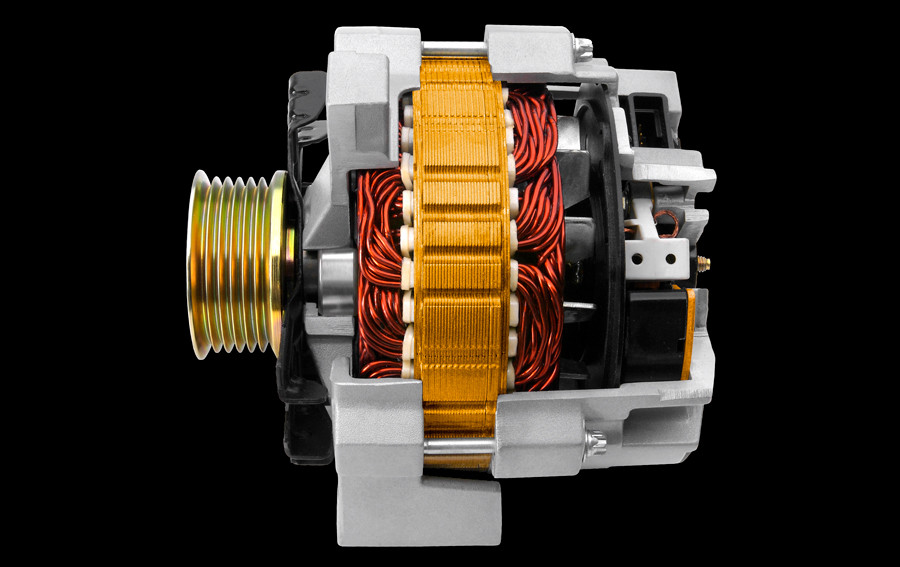How Much Does It Cost to Fix Car Electrical Problems?
Fixing car electrical issues can be a daunting prospect, but understanding the costs involved is the first step to getting back on the road, and CARDIAGTECH.NET is here to assist you. From battery replacements to complex wiring repairs, knowing what to expect financially can help you prepare and make informed decisions. This article breaks down the costs associated with common automotive electrical repairs, offering insights into budgeting and preventative measures. Discover how to keep your vehicle’s electrical system in top shape and the diagnostic tools that can help, ensuring a smooth ride with reliable voltage and minimal circuit issues.
1. Battery Replacement Cost
Question: How much does it cost to replace a car battery?
Replacing a car battery typically costs around $342-$352. Your car’s battery is essential for starting the engine and powering electrical components. A failing battery can lead to various issues, making replacement necessary to ensure your vehicle’s reliability.
-
Symptoms of a Dying Battery:
- Dim interior lights can indicate a weakening battery.
- If the engine struggles to turn over, it’s a sign the battery is failing.
- The battery warning light illuminating on your dashboard signals potential trouble.
- The car stalling unexpectedly may also point to battery issues.
-
Causes of Battery Failure: Batteries naturally degrade over time, typically lasting three to five years, according to AAA. Heat can accelerate this process, reducing the battery’s lifespan, as noted by research from Arizona State University’s School of Sustainability in 2021.
-
Preventative Measures: To extend battery life, take longer trips regularly to ensure the battery recharges fully. Secure the battery tightly to minimize vibrations, which can cause premature failure.
2. Alternator Replacement Cost
Question: What is the cost to replace an alternator in a car?
Replacing an alternator typically costs between $608 and $790. The alternator recharges the battery and provides power to the car’s electrical systems while the engine is running.
-
Symptoms of a Failing Alternator:
- Warning lights on the dashboard indicate electrical issues.
- Fluctuating electricity, such as dimming and brightening lights, is a common symptom.
- Electrical components losing power suggests alternator problems.
- The car stalling and being unable to restart with a jump indicates a failing alternator.
- Unusual grinding noises that change with speed are also signs.
- A burning rubber smell can indicate an overheating alternator.
-
Causes of Alternator Issues: Alternators contain wearing parts like bearings and belts that endure constant strain. Regular wear and tear will eventually lead to failure, as highlighted in a 2022 report by B-Parts.
-
Preventative Measures: Address any alternator issues promptly to avoid complete replacement. Regular maintenance checks by a mechanic can help identify potential problems early. Avoid overloading the car’s electrical system with too many aftermarket upgrades.
3. Starter Motor Replacement Cost
Question: How much does it cost to replace a starter motor?
Replacing a starter motor typically costs between $428 and $581. The starter motor is essential for turning on the engine when you start the car.
-
Symptoms of a Failing Starter Motor:
- A clicking noise when turning the key without the engine starting is a sign of a dead starter motor.
- A whirring noise may indicate a failing starter solenoid.
-
Causes of Starter Issues: Faulty wiring, mechanical breakdowns, dirt, rust, and oil leaks can all cause starter issues, according to Firestone Complete Auto Care.
-
Preventative Measures: Control battery corrosion to prevent it from spreading to the starter. Maintain the battery and fuses in good condition. Avoid frequent stopping and starting, which can wear down the starter.
4. Fuse Box Replacement Cost
Question: What is the average cost to replace a car fuse box?
The average cost to replace a car fuse box is around $125, but you can replace individual fuses for just a few cents. Fuse boxes protect the car’s electrical system by preventing overloads.
-
Symptoms Indicating Fuse Box Replacement:
- Frequently failing fuses suggest a larger problem.
- Loose fuses can indicate a damaged fuse box.
- Broken or bare wires are signs of potential issues.
- Water stains on the fuse box suggest water damage.
-
Maintenance Tips: Fuse boxes don’t typically need replacement, but if they fail, they can bring down the entire electrical system. Consult a mechanic if you frequently experience issues with fuses.
5. Spark Plug Replacement Cost
Question: How much does it cost to replace spark plugs in a car?
The average cost to replace spark plugs ranges from $207 to $264 per plug. Spark plugs are vital for igniting the fuel and powering the engine.
-
Symptoms of Failing Spark Plugs:
- Engine trouble, including vibrations and rough idling, indicates spark plug issues.
- The “Check Engine” light turning on is a common sign.
- Decreased gas mileage suggests worn spark plugs.
- Power surges and drops while driving can also indicate problems.
-
Causes of Spark Plug Issues: Spark plugs wear out over time, requiring periodic replacement.
-
Maintenance Tips: Avoid rough driving habits and harsh road conditions. Address any leaking engine fluids that can impact spark plugs.
6. Ignition Coil Replacement Cost
Question: What is the cost to replace an ignition coil?
The average cost to replace an ignition coil is between $214 and $290 per coil. Ignition coils provide electricity to the spark plugs.
-
Symptoms of a Failing Ignition Coil:
- Engine trouble, including stalling, is a sign of ignition coil problems.
- The “Check Engine” light illuminating indicates potential issues.
- A sound of a rubber band snapping under the hood can indicate a failing coil.
- The car refusing to start may also be a symptom.
- Reduced gas mileage suggests ignition coil issues.
-
Causes of Ignition Coil Issues: Engine heat and vibrations can cause ignition coils to break down over time, according to AutoZone. Malfunctioning spark plugs can also damage the ignition coils.
-
Maintenance Tips: Follow the manufacturer’s recommended replacement schedule. Replace spark plugs when you notice issues.
7. Car Wiring Repair Cost
Question: How much does it cost to repair car wiring issues?
Diagnosing car wiring issues typically costs between $88 and $111, while repairs can range from $1,300 to $2,000. Faulty wiring can disrupt the electrical circuit and cause various problems.
-
Symptoms of Car Wiring Problems:
- Flickering lights or occasional power loss indicates wiring issues.
- The smell of burning plastic suggests overheating wires.
- Issues with starting the car can also point to wiring problems.
- Frequently blowing fuses may be related to faulty wiring.
-
Causes of Car Wiring Issues: Common causes include rodents chewing on wires, corrosion, and wires loosening over time.
-
Preventative Measures: Winterize your car if it will be sitting for a while to avoid rodents. Fix electrical problems promptly and regularly wash your car to identify any loose or damaged wires.
8. Engine Control Module (ECM) Replacement Cost
Question: How much does it cost to replace an engine control module (ECM)?
Replacing an engine control module typically costs between $960 and $1,035. The ECM is a computer that controls the engine, essential for modern cars.
-
Symptoms of a Failing ECM:
- The car won’t start if the ECM fails.
- The “Check Engine” light turns on.
- Frequent stalling and poor running indicate ECM issues.
-
Maintenance Tips: While the ECM should last the lifetime of the car, it can fail prematurely. There’s not much you can do to prevent this.
9. Comprehensive Guide to Car Electrical Problem Costs
To provide a clearer overview, here’s a table summarizing the costs associated with fixing common car electrical problems:
| Electrical Problem | Average Repair Cost | Symptoms | Causes | Preventative Measures |
|---|---|---|---|---|
| Battery Replacement | $342-$352 | Dim lights, slow engine turnover, battery warning light, car stalling | Aging, heat, vibrations | Regular long trips, avoid excessive heat, secure battery tightly |
| Alternator Replacement | $608-$790 | Power warning lights, fluctuating electricity, electrical components losing power, car stalling, grinding noise, burning rubber smell | Wearing parts, overloading electrical system | Prompt repairs, regular maintenance, avoid overloading the system |
| Starter Motor Replacement | $428-$581 | Clicking noise, engine won’t turn over, whirring noise | Faulty wiring, mechanical breakdown, dirt, rust, oil leaks | Control battery corrosion, maintain battery and fuses, avoid frequent stopping and starting |
| Fuse Box Replacement | $125 | Frequently failing fuses, loose fuses, broken wires, water stains | Rare failure, electrical system issues | Err on the side of caution, consult a mechanic for frequent fuse issues |
| Spark Plug Replacement | $207-$264 per plug | Engine trouble, “Check Engine” light, decreased gas mileage, power surges and drops | Wear and tear | Avoid rough driving, address leaking engine fluids |
| Ignition Coil Replacement | $214-$290 per coil | Engine trouble, “Check Engine” light, snapping sound, car refuses to start, reduced gas mileage | Engine heat, vibrations, malfunctioning spark plugs | Follow replacement schedule, replace spark plugs when needed |
| Car Wiring Repair | $1,300-$2,000 | Flickering lights, power loss, burning plastic smell, starting issues, frequently blowing fuses | Rodents, corrosion, loose wires | Winterize car, fix electrical problems promptly, wash car regularly |
| ECM Replacement | $960-$1,035 | Car won’t start, “Check Engine” light, frequent stalling | Largely a matter of chance | Limited preventative measures |
10. Why Addressing Electrical Problems Promptly is Crucial
Electrical issues in cars can quickly escalate, leading to significant problems if not addressed promptly. Ignoring these issues can compromise the vehicle’s reliability and safety.
- Safety Risks: Faulty wiring or malfunctioning components can increase the risk of electrical fires, posing a direct threat to the occupants.
- Vehicle Performance: Electrical problems can cause the car to stall, run poorly, or even fail to start, leading to inconvenience and potential safety hazards.
- Costly Repairs: Addressing minor electrical issues early can prevent them from escalating into major repairs, saving significant money in the long run.
- Systemic Damage: Electrical faults can damage other components in the vehicle, leading to a cascade of problems that are more expensive to fix collectively.
- Resale Value: A well-maintained electrical system can enhance the car’s resale value, as potential buyers will have confidence in its reliability.
11. Diagnosing Common Car Electrical Problems
Effectively diagnosing electrical problems is key to accurate and efficient repairs. Here are some tools and techniques commonly used by technicians.
- Multimeter: This essential tool measures voltage, current, and resistance, helping to identify circuit issues and component failures.
- OBD-II Scanner: This device reads diagnostic trouble codes (DTCs) stored in the car’s computer, providing insights into specific electrical faults.
- Wiring Diagrams: These detailed schematics help technicians trace circuits and identify breaks, shorts, or other wiring issues.
- Test Lights: These simple tools can quickly check for power and ground in a circuit.
- Visual Inspection: A thorough visual inspection can reveal obvious issues such as damaged wiring, corroded connections, or blown fuses.
12. The Role of CARDIAGTECH.NET in Solving Car Electrical Problems
CARDIAGTECH.NET offers a range of solutions to help diagnose and fix car electrical problems efficiently. Our high-quality diagnostic tools and equipment ensure that technicians can quickly identify issues, reducing repair times and costs.
- Advanced Diagnostic Tools: CARDIAGTECH.NET provides state-of-the-art diagnostic tools that offer accurate and reliable results. These tools are designed to work with a wide range of vehicle makes and models, ensuring compatibility and effectiveness.
- Comprehensive Equipment: From multimeters to OBD-II scanners, CARDIAGTECH.NET offers a comprehensive selection of equipment needed to tackle any electrical repair.
- Expert Support: Our team of experts is available to provide support and guidance, helping technicians troubleshoot complex electrical issues.
- Cost-Effective Solutions: By providing tools that improve diagnostic accuracy and efficiency, CARDIAGTECH.NET helps reduce overall repair costs, benefiting both technicians and car owners.
- Training and Resources: CARDIAGTECH.NET offers training resources to help technicians stay updated on the latest diagnostic techniques and technologies, ensuring they can handle even the most challenging electrical problems.
13. The Importance of Regular Maintenance for Electrical Systems
Regular maintenance is vital for preventing electrical problems and ensuring the longevity of your car’s electrical system. Here are some key maintenance tips.
- Battery Checks: Regularly check the battery terminals for corrosion and clean them as needed. Ensure the battery is securely mounted to prevent vibrations.
- Wiring Inspections: Inspect wiring for damage, fraying, or loose connections. Address any issues promptly to prevent shorts or other problems.
- Fuse Checks: Periodically check the fuse box for blown or damaged fuses. Replace any faulty fuses with the correct amperage.
- Component Testing: Have electrical components such as the alternator and starter motor tested regularly to identify potential issues before they cause a breakdown.
- Professional Inspections: Schedule regular professional inspections to have a qualified technician assess the overall health of the electrical system.
14. How CARDIAGTECH.NET Can Help Prevent Costly Electrical Repairs
Investing in high-quality diagnostic tools from CARDIAGTECH.NET can significantly reduce the risk of costly electrical repairs. Our tools enable technicians to perform accurate diagnostics, identify potential issues early, and implement preventative measures.
- Early Issue Detection: CARDIAGTECH.NET tools allow for the early detection of electrical problems, preventing them from escalating into major repairs.
- Accurate Diagnostics: Our diagnostic equipment ensures accurate and reliable results, reducing the risk of misdiagnosis and unnecessary repairs.
- Preventative Maintenance: By identifying potential issues early, technicians can perform preventative maintenance to extend the life of electrical components.
- Reduced Downtime: Accurate and efficient diagnostics minimize downtime, getting cars back on the road quickly.
- Cost Savings: By preventing major electrical failures, CARDIAGTECH.NET helps car owners save money on costly repairs.
15. Understanding the Search Intent Behind “How Much Does It Cost to Fix Car Electrical Problems”
Understanding the search intent behind the query “How Much Does It Cost To Fix Car Electrical Problems” is crucial for providing relevant and valuable content. Here are five key user intents:
- Informational: Users want to understand the general costs associated with various car electrical repairs.
- Comparative: Users are comparing the costs of different electrical repairs to budget and plan accordingly.
- Diagnostic: Users seek to identify the potential electrical problems they might be facing and their associated costs.
- Preventative: Users want to learn about maintenance practices that can prevent electrical issues and save money in the long run.
- Local Service: Users are looking for local repair shops and services that can provide cost estimates for fixing their car’s electrical problems.
16. Step-by-Step Guide to Troubleshooting Common Electrical Issues
Here’s a practical guide to help you troubleshoot common electrical issues in your car:
- Check the Battery:
- Visual Inspection: Look for corrosion on the terminals. Clean them with a mixture of baking soda and water if necessary.
- Voltage Test: Use a multimeter to check the battery voltage. A fully charged battery should read around 12.6 volts.
- Inspect Fuses:
- Locate Fuse Boxes: Consult your car’s manual to find the fuse box locations.
- Visual Check: Remove each fuse and inspect it. If the wire inside is broken, the fuse is blown.
- Replacement: Replace blown fuses with new ones of the same amperage.
- Test Relays:
- Identify Relays: Refer to your car’s manual to identify the relays associated with the affected system.
- Swap Test: Swap the relay with a known working relay (of the same type) to see if the issue resolves.
- Check Wiring:
- Visual Inspection: Look for damaged, frayed, or loose wires.
- Continuity Test: Use a multimeter to check the continuity of wires. If there’s no continuity, the wire is broken.
- Use an OBD-II Scanner:
- Connect Scanner: Plug the scanner into the OBD-II port (usually under the dashboard).
- Read Codes: Read and record any diagnostic trouble codes (DTCs).
- Research Codes: Use the codes to research the potential causes of the electrical issue.
17. The Future of Car Electrical Systems and Repair Costs
As cars become more technologically advanced, their electrical systems are growing more complex. This evolution is influencing repair costs and diagnostic techniques.
- Increased Complexity: Modern cars feature sophisticated electrical systems with numerous sensors, computers, and electronic components.
- Higher Repair Costs: The complexity of these systems can lead to higher repair costs, as specialized tools and expertise are required for diagnostics and repairs.
- Advanced Diagnostics: Future diagnostics will rely heavily on advanced tools and software, enabling technicians to quickly identify and resolve complex electrical issues.
- Electric Vehicles (EVs): The rise of EVs is bringing new electrical challenges, including high-voltage systems and battery management.
- Preventative Technology: Advanced driver-assistance systems (ADAS) and predictive maintenance technologies will help prevent electrical failures and reduce repair costs.
18. Maximizing the Lifespan of Your Car’s Electrical System
Here are essential tips to maximize the lifespan of your car’s electrical system:
- Regular Inspections: Schedule routine inspections to identify potential issues early.
- Proper Battery Care: Keep the battery clean, secure, and fully charged.
- Wiring Maintenance: Protect wiring from damage and corrosion.
- Avoid Overloading: Avoid overloading the electrical system with too many aftermarket accessories.
- Professional Service: Entrust electrical repairs to qualified technicians with the right tools and expertise.
19. Frequently Asked Questions (FAQ) About Car Electrical Problems
Question 1: How often should I have my car’s electrical system checked?
It’s recommended to have your car’s electrical system checked at least once a year or during every major service.
Question 2: What are the most common signs of electrical problems in a car?
Common signs include dimming lights, frequent stalling, blown fuses, and a car that won’t start.
Question 3: Can I fix car electrical problems myself?
Some minor issues like replacing a fuse can be done DIY, but complex problems should be handled by a professional.
Question 4: How long does it take to diagnose an electrical problem in a car?
Diagnosis can take anywhere from one hour to several hours, depending on the complexity of the issue.
Question 5: What tools are needed to diagnose car electrical problems?
Essential tools include a multimeter, OBD-II scanner, test light, and wiring diagrams.
Question 6: How can I prevent rodent damage to my car’s wiring?
Use rodent repellent sprays and park your car in well-lit areas to deter rodents.
Question 7: What is the role of the alternator in a car’s electrical system?
The alternator recharges the battery and provides power to electrical systems while the engine is running.
Question 8: How does heat affect a car’s battery life?
Heat can accelerate battery degradation, reducing its lifespan.
Question 9: What is an ECM, and why is it important?
The Engine Control Module (ECM) is a computer that controls the engine, essential for modern cars.
Question 10: How can CARDIAGTECH.NET help with car electrical problems?
CARDIAGTECH.NET provides high-quality diagnostic tools and equipment to accurately identify and fix electrical issues efficiently.
20. Contact CARDIAGTECH.NET for Your Automotive Electrical Needs
Don’t let electrical problems keep you off the road. Contact CARDIAGTECH.NET today for expert advice and high-quality diagnostic tools that will help you get your car back in top shape. Our team is ready to assist you with all your automotive electrical needs.
- Address: 276 Reock St, City of Orange, NJ 07050, United States
- WhatsApp: +1 (641) 206-8880
- Website: CARDIAGTECH.NET
Ready to solve your car electrical problems? Contact CARDIAGTECH.NET now and let our experts help you find the right tools to get the job done efficiently and effectively. Don’t wait – ensure your vehicle’s reliability and safety today!







